‘You Are What You Eat’, FOLO Farm Takes Healthy Food Seriously
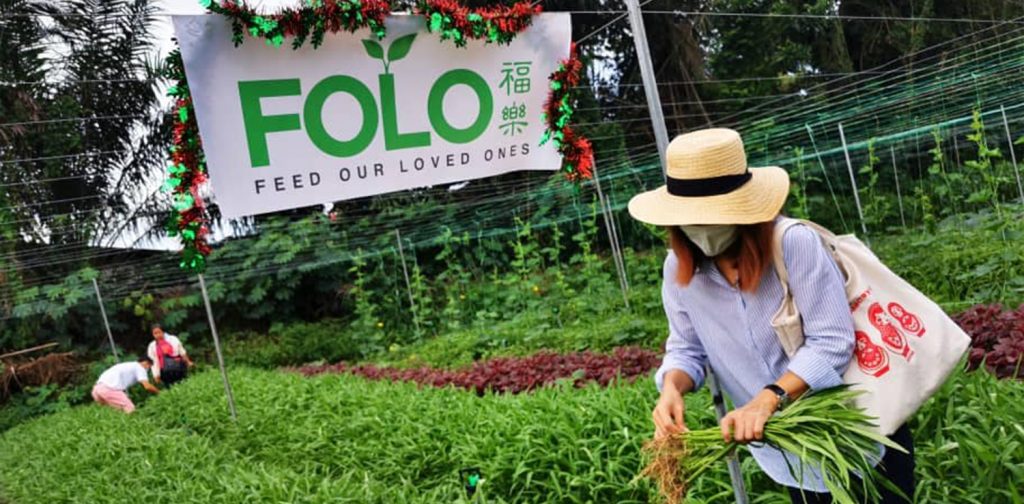
One of the participants in the joint harvest and Farm Tour activities held by FOLO Farm. | Source: Facebook
After graduating from the University of Calgary, Canada, Doctor Lemuel Ng started his practice as a doctor in 1999 in various Asian, American, and European countries. Since 2013, he started farming with his five best friends: Will Chua, T.Y. Tang, Gerald Ling, Jason Lim, and Jacqueline Lim. In the Kempas area, Johor Bahru, Malaysia, they opened an agricultural land called Feed Our Loved Ones (FOLO) Farm.
While farming, Doctor Lamuel continues to carry out his duties as a doctor. Now, the approach he uses in his efforts to heal patients is very different from before. He believes that in addition to medical treatment, patients should also receive holistic and comprehensive healing, which comes from good quality food and environmental health. He pairs his stethoscope with a shovel and encourages his patients to frequent the vegetable garden.
“Before, we were living in different countries. Then after one of our brothers was diagnosed with kidney failure at the age of 25, we all went home and started this FOLO Farm project,” explained Doctor Lemuel.
They set out to conduct research on food ingredients circulating in Malaysia. As a result, they concluded that many vegetables in Malaysia contain excessive levels of pesticides. In fact, there are some conditions where pesticide levels are higher than vegetables imported from China and Thailand.
So is the case with animal feed. Many are already contaminated with various types of antibiotics, and this worries them. If this condition continues, some types of pests will become resistant to pesticides and antibiotics. This will cause hazardous consequences on the human body and health as well.
“It’s not the farmers’ fault,” said Doctor Lemuel, “They were forced to do that out of the circumstance; Pursue harvest targets, pursue market demand, and so on. During this time, I recommend my patients eat more vegetables and fruit. But there is something that escapes me, namely the quality of the food they eat. The human body can ‘fight’ to heal itself, but it depends on the quality of the nutrients that enter the body.”
Instead of blaming the other party, Doctor Lemuel and his friends took the initiative to make their own farmland, which, according to them, was healthier. However, they had absolutely no knowledge of farming. Then they started learning from a local farmer called Lek Shifu (Master Lek). They took advantage of tutorials from YouTube channels and authoritative blog articles. Their parents’ 0.2-hectare land was the first soil they used.
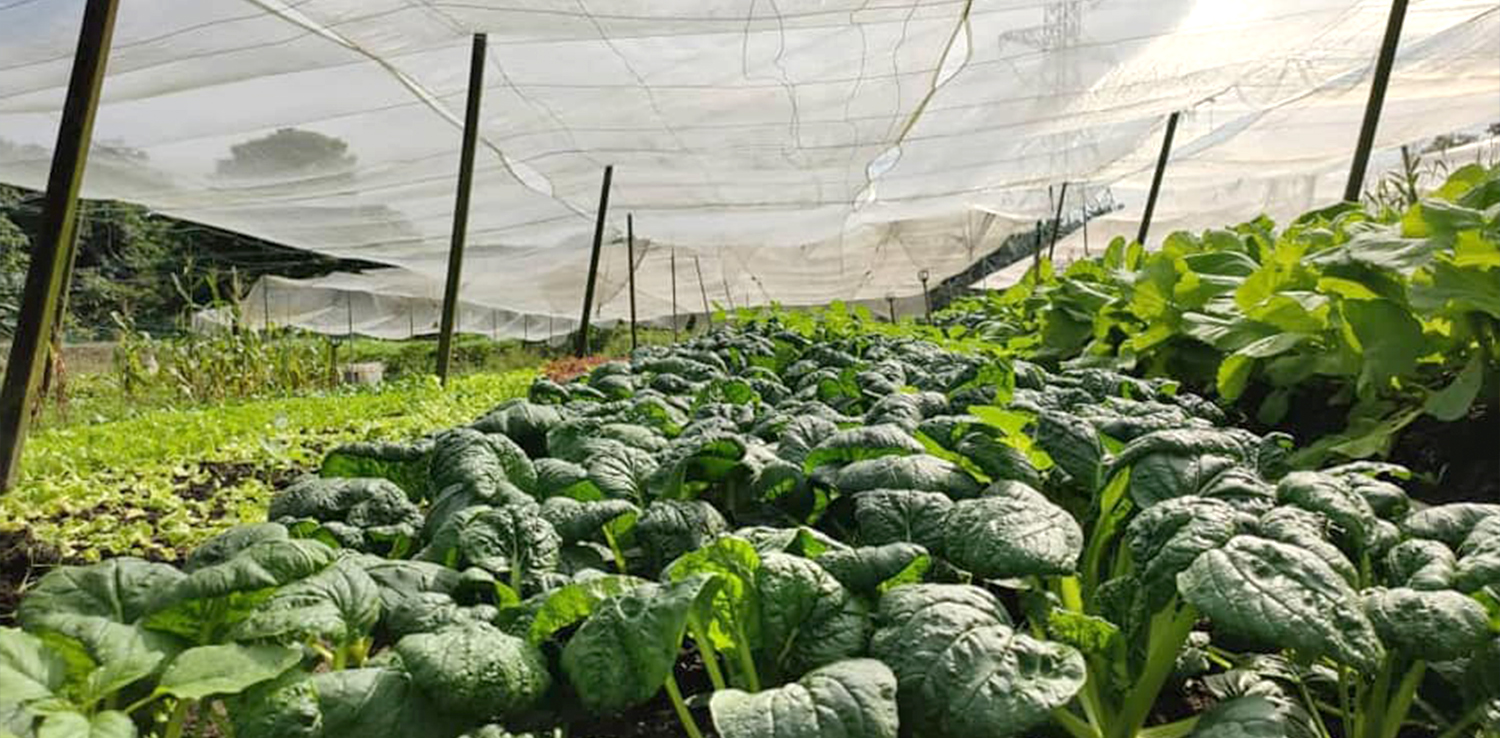
Over time, Doctor Lamuel and his friends managed to grow 40 types of vegetables on an area of 4.04 hectares in Ban Foo, Kempas, and another 2.4 hectares of land in Kukup. The crops they grow include lettuce, beets, bok choy, corn, brinjal, and many more. Through this land, they supply food and fresh vegetables to 150 families at the cost of RM2,440 (around $586) for 24 weeks.
All vegetables are produced organically, without the slightest amount of chemical pesticide. Fertilization of the plants is carried out using fully composted manure. Every day they go around the city picking up food waste from restaurants, hotels, and other places. The food waste is processed into compost for 4 months, then is used to fertilize the land.
Doctor Lemuel still provides medical services, especially on nutritional consultations, to the FOLO Farm community members. Caleb Ng, Doctor Lemuel’s father, was one of those treated patients. He was diagnosed with coronary heart disease. His health gradually improved since receiving treatment and a healthy diet from the FOLO Farm’s crops.
“I once told the six children, ‘You guys are dreamers!’” said the father, “When I saw my son starting to pick up the kitchen trash, I felt sad and heartbroken. He had a good career as a doctor, and he achieved all of that after thriving so much. However, after seeing the results now, I no longer see my son’s achievement from the amount of money he makes, but from his impact on society. Today I can say that I am very proud of him.”
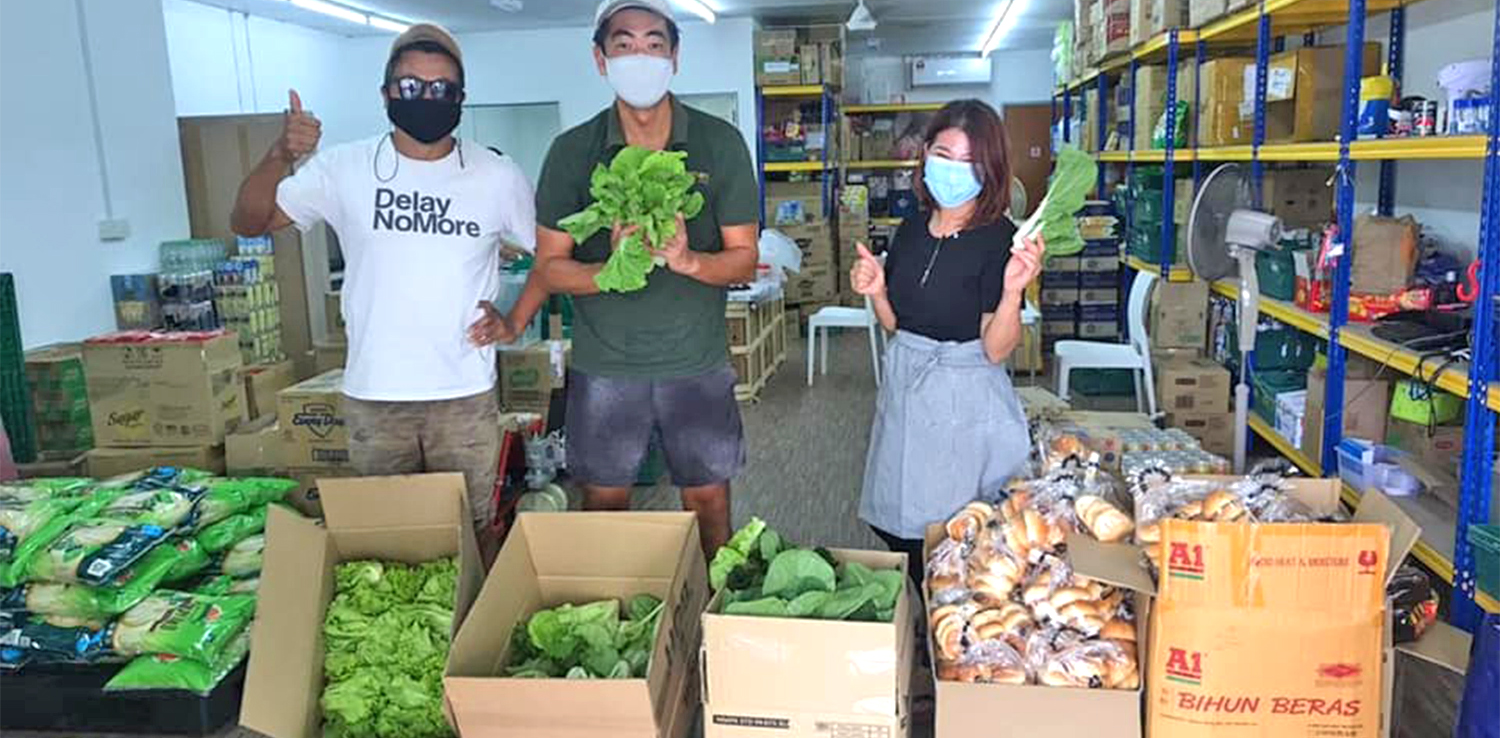
FOLO Farm also offers a tour plus assistance for anyone who visits the farm and wants to learn about agriculture, healthy food, and independent composting. For its dedication, FOLO Farm received development funding assistance from the government of RM100,000 (around $24,000). They also received a $10,000 prize from Chivas Venture, an annual competition to fund inspirational and potential startups worldwide. They used it to buy new tractors.
FOLO Farm’s strategic steps are an effort to become a sustainable solution for public health problems starting from its roots, the issue of healthy food. Moreover, the method used by FOLO Farm also contributes to the processing of food waste which is often a problem in various big cities. FOLO Farm’s activities are not merely of business value but also become solutions to environmental and social issues in a sustainable manner.
Translator: Aliyah Assegaf
Source: Passion Portraits
To follow FOLO FARM activities, you could visit their social media accounts on Facebook and Instagram.
To learn the original version of this article in Indonesian, read Green Network ID.

Zia Ul Haq
Zia is a Reporter at Green Network Asia. He graduated from UIN Sunan Kalijaga Yogyakarta with a bachelor's degree in Islamic Education. He is currently a Learning Companion at Qaryah Thayyibah Learning Community (KBQT).

 Test Custom Feature Image
Test Custom Feature Image  Electric Vehicles Roam the Roads of Kenya
Electric Vehicles Roam the Roads of Kenya 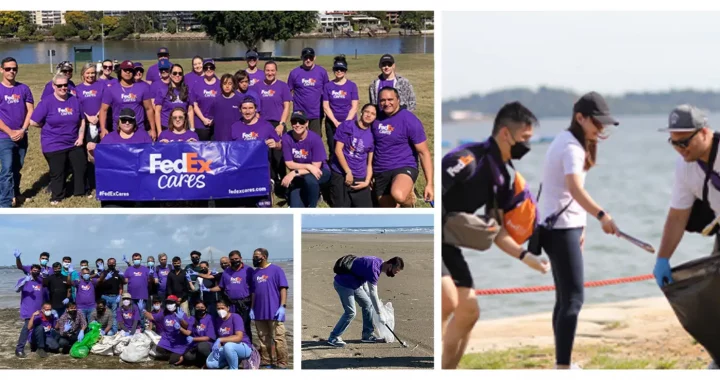 FedEx Engages Employees with Beach Clean-Up Initiative
FedEx Engages Employees with Beach Clean-Up Initiative  Come Back Stronger: Building Philippines’ Resilient Economy Post-COVID-19
Come Back Stronger: Building Philippines’ Resilient Economy Post-COVID-19  Inside Experian’s Sustainability Journey: An Interview with Chief Sustainability Officer Abigail Lovell
Inside Experian’s Sustainability Journey: An Interview with Chief Sustainability Officer Abigail Lovell 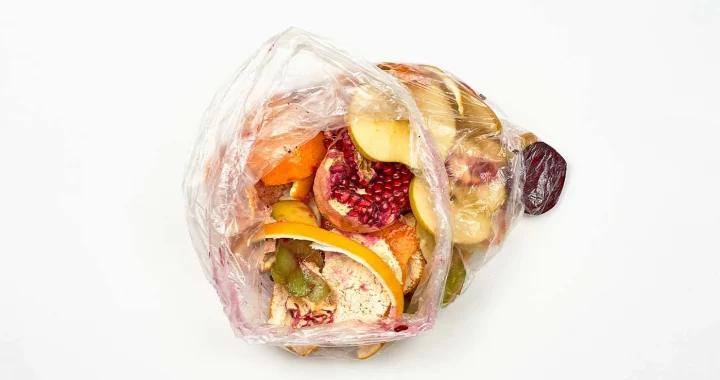 5 Food System Actors That Have Taken the 123 Pledge to Reduce Food Loss & Waste
5 Food System Actors That Have Taken the 123 Pledge to Reduce Food Loss & Waste  Test premium post
Test premium post